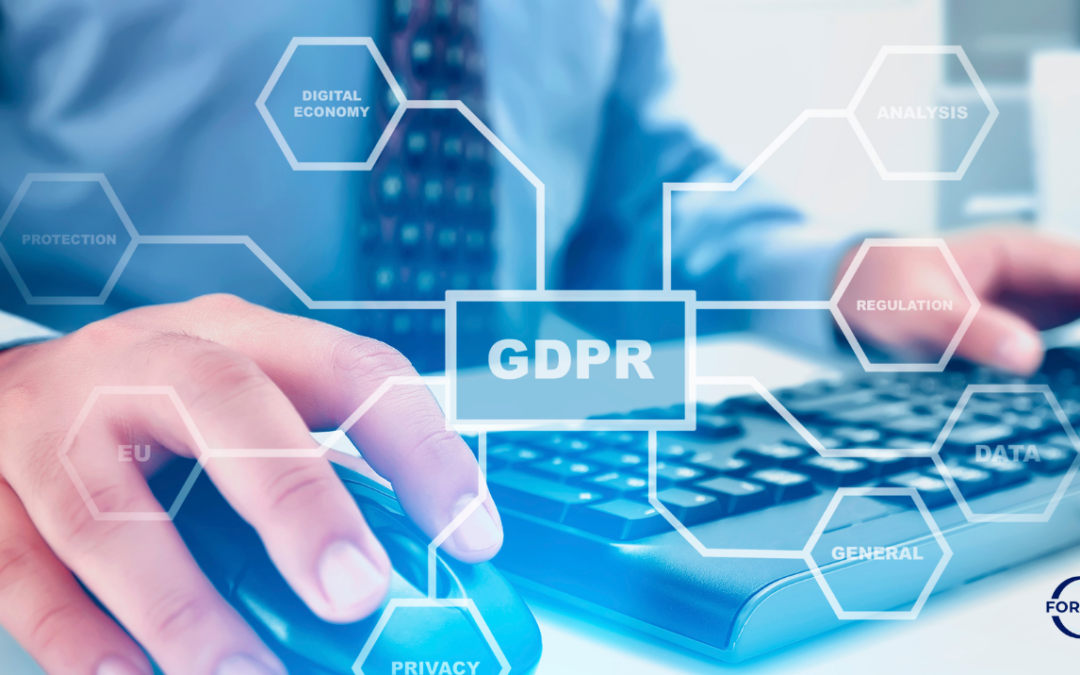Introduction
Since the General Data Protection Regulation (GDPR) came into force in 2018, organisations worldwide have faced the critical responsibility of safeguarding personal data. Industries such as biotech, fintech, and medical devices, where sensitive data is routinely processed, experience an even greater pressure to maintain strict GDPR compliance due to their handling of highly sensitive data. For these sectors, compliance with GDPR is not only a regulatory requirement but a strategic necessity for business credibility and consumer trust. Understanding the nuances of GDPR regulations, therefore, becomes essential for each sector to navigate data privacy laws and avoid potentially devastating penalties.
Why GDPR Compliance Matters in Biotech, Fintech, and Medical Device Industries
The GDPR is Europe’s most comprehensive data privacy regulation, setting a global standard for data protection that affects nearly every organisation, regardless of location, that handles the data of EU citizens. Compliance with GDPR involves fulfilling stringent obligations, including data minimisation, ensuring data subject rights, and implementing robust security measures. This presents challenges across industries, especially for biotech, fintech, and medical devices, where data sensitivity and regulatory scrutiny are particularly high.
GDPR in Biotech: Protecting Sensitive Health Data
Biotech firms work with vast volumes of sensitive health and genetic data, making GDPR compliance imperative. Given the nature of biotech data—often personal and unique to each individual—GDPR requires these organisations to enact highly secure data protection measures. Non-compliance could result in breaches that jeopardise not only patient confidentiality but also the organisation’s reputation and the trust of stakeholders. For the biotech industry, complying with GDPR often means implementing rigorous consent protocols, maintaining data accuracy, and ensuring accountability at every stage of data processing.
GDPR’s principles of ‘privacy by design’ and ‘data minimisation’ are particularly relevant here. These require biotech companies to integrate data protection protocols into their processes from the outset and to collect only the data necessary for research. To avoid penalties, biotech organisations must also maintain documentation and be prepared to demonstrate their compliance practices to regulatory bodies upon request.
GDPR in Fintech: Building Trust in a Data-Driven World
Fintech firms are at the forefront of digital transformation in financial services, leveraging data to deliver personalised banking, investment, and credit solutions. However, the reliance on personal and financial data brings the responsibility of strict compliance with GDPR. Since fintech companies handle a range of personal identifiers—such as payment history, credit scores, and biometric data—they face particular scrutiny regarding how this data is collected, stored, and shared.
Fintech organisations must implement clear consent mechanisms, regularly review data processing practices, and invest in secure encryption technologies. Failure to comply with GDPR regulations can lead to heavy fines and erode consumer trust—a critical element for fintech companies looking to maintain their customer base in a competitive market. By building strong GDPR compliance measures, fintech firms can reassure clients and investors that their data is safe, ultimately fostering a reputation as a trustworthy financial partner.
GDPR in Medical Devices: Balancing Innovation with Data Privacy
The medical device sector faces a unique GDPR challenge as it intersects healthcare, technology, and patient data. Devices connected to the Internet of Things (IoT) collect a wealth of sensitive information, from patient health data to device usage patterns. This connectivity provides critical insights but also introduces risks associated with data breaches and regulatory non-compliance.
For medical device companies, GDPR compliance means implementing data protection by design and ensuring the security of data both in storage and during transmission. Companies must also provide individuals with rights to access, correct, and erase their data, often presenting a logistical challenge due to the dispersed nature of data across various devices and systems. To align with GDPR requirements, medical device firms need comprehensive policies that address data subject rights and enforce stringent data management standards. Non-compliance here could lead not only to financial penalties but also to product recalls and reputation damage.
Implementing GDPR Compliance Strategies
While the specific GDPR obligations vary by sector, certain compliance strategies are broadly applicable across industries:
- Conduct Regular Data Audits: Audits help identify all personal data held by the organisation, assess the need for each type of data, and ensure compliance with data minimisation principles.
- Appoint a Data Protection Officer (DPO): A DPO oversees data protection strategies, monitors GDPR compliance, and serves as a liaison with regulatory authorities. This role is crucial for any organisation handling sensitive data.
- Adopt Privacy by Design and Default: Integrate data protection protocols into your organisation’s core operations and limit data collection to the minimum necessary for business purposes.
- Ensure Data Subject Rights: Enable individuals to exercise their GDPR rights, including data access, correction, and erasure, as appropriate.
- Invest in Robust Cybersecurity Measures: Cybersecurity is a critical aspect of GDPR compliance. Implement firewalls, encryption, and regular security testing to safeguard personal data against unauthorised access.
- Build a third country authority, law or sobpeona response plan and stay compliant with GDPR article 48
Conclusion: Simplifying GDPR Compliance with Formiti’s Outsourced DPO Service
For organisations navigating the complexities of GDPR, managing an in-house DPO function can be a resource-intensive undertaking. Formiti’s Outsourced Data Protection Officer (DPO) Service offers an ideal solution, providing you with access to experienced data protection experts at a fraction of the cost of hiring a full-time officer. Our DPO service is designed to help organisations across biotech, fintech, and medical devices manage their GDPR obligations seamlessly, including overseeing data audits, ensuring data protection by design, and liaising with regulatory authorities. With Formiti as your trusted DPO partner, GDPR compliance becomes a manageable, strategic advantage rather than a regulatory burden.
